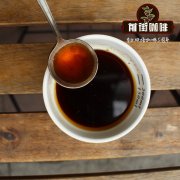How do you drink Yemeni coffee? What are the characteristics of Yemeni coffee beans? Yemeni boutique coffee beans

Professional coffee knowledge exchange more coffee bean information please follow the coffee workshop (Wechat official account cafe_style)
According to the World Coffee Institute, the first archaeological evidence of beverage coffee consumption has been found in the Yemeni city of Zabid.
In the 15th century, coffee was grown in Yemen to meet local needs. In 1450, Islamic Sufi people in Yemen first began drinking coffee to stay awake during late-night prayers. This led to the transformation of hillsides into terraced slopes, and people invented agricultural techniques for growing coffee.
The love injected by darkness spread throughout the Arabian Peninsula and the Red Sea, and merchants and businessmen met all over the world.
Yemen shipped large quantities of sterile beans from the port of Mokha, drinking coffee was popular all over the world, and coffee shops were opened in Europe since 1650.
Mocha originally refers to the beans transported by the Arab port of Mocha, located in the countries of Yemen on the Arabian Peninsula. Today's pure and rare Yemeni mocha is rare. The pure mocha is rare, expensive, rich and mellow.
YEMEN MOCHA, Yemen, although, in terms of species research, coffee originated from Ethiopia, from a humanistic point of view, the introduction of coffee as a beverage to the European world took place in Yemen in Arabia. since then, coffee is equal to Yemen and Mocha.
Mocha is a commercial port, just as Brazilian coffee is exported by Santos port, so it is called Brazilian coffee with Santos. The port of Mocha, which exports coffee, has also become the general name of Yemeni coffee.
Yemen is completely different from other coffee-producing countries because of its lack of water, dry climate and poor land, which makes the coffee trees that survive in Yemen different from those grown in other large coffee countries. Compared with Arab Yemen, the climate of Central and South America is like a well-equipped greenhouse. Adverse factors lead to the decline of the Yemeni coffee industry. But also because of these factors, the flavor of Yemeni coffee shows uncontrollable primitive wildness.
Even though the Yemeni coffee industry has declined, this bean can still be seen in the boutique coffee market.
The variety of Yemeni coffee is complex, so it is generally named after the place of origin, such as Mattari,Sanani,Ismaeili,Hirazi, etc., and the official name will be preceded by Yemeni mocha, such as YEMEN MOCHA MATTARI.
Because coffee is expensive. The manual production of Yemeni coffee, the exploitation of middlemen and the high cost of transportation make coffee almost a luxury. Before 1690, there were only three coffee-growing areas in Yemen, located on steep, irrigated mountains, divided into small coffee plantations with only a few hundred farmers.
Farmers bring their own coffee beans from a nearby small coffee garden to the market to sell them all the year round. De la Roque recorded that the harvest was "irregular and irregular, so the Arabs did not know that there was a so-called harvest season". Coffee farmers bring coffee beans to the market six days a week and sell a little more coffee every day than they did the day before; when the price is low, they do not sell it. In the market, Indian businessmen and Arabs control the coffee business. The Dutch and British East India companies have had representatives in Mocha since the early 17th century, and even so, they, like de la Roque, are bought through Indian middlemen who are said to be the best bargainers. Europeans have a low commercial status because they have no political clout, and the only European goods the Yemenis want is Piast coins made of Mexican silver, which they need on the spot.
Qianjie Coffee suggests [Yemeni mocha] brewing parameters:
V60According to one minute and fifty seconds, 15 ℃ / time
Flavor: spices, chocolates, grapes
Important Notice :
前街咖啡 FrontStreet Coffee has moved to new addredd:
FrontStreet Coffee Address: 315,Donghua East Road,GuangZhou
Tel:020 38364473
- Prev

What are the boutique coffee beans of Yemeni coffee? Yemeni famous coffee beans
Professional coffee knowledge exchange more coffee bean information please follow the coffee workshop (Wechat official account cafe_style) Yemen mocha (YEMEN MOCHA), although in terms of species research, coffee originated in Ethiopia, but from a human point of view, the introduction of coffee as a beverage to the European world took place in Yemen, Arabia, and there has been a period since then.
- Next

Tanzania Coffee-are the coffee beans in the Shiviwaka producing area of Shvivaka bitter? What's the wind?
Professional coffee knowledge exchange more coffee bean information please follow the coffee workshop (Wechat official account cafe_style) Tanzania Coffee-Shvivaka Shiviwaka production area coffee beans are bitter? What flavor and taste do you have? How to cook it? Tanzania is famous for its peaberry coffee, but Tanzania Shiviwaka Co-Op 's AA is our best this year.
Related
- Detailed explanation of Jadeite planting Land in Panamanian Jadeite Manor introduction to the grading system of Jadeite competitive bidding, Red bid, Green bid and Rose Summer
- Story of Coffee planting in Brenka region of Costa Rica Stonehenge Manor anaerobic heavy honey treatment of flavor mouth
- What's on the barrel of Blue Mountain Coffee beans?
- Can American coffee also pull flowers? How to use hot American style to pull out a good-looking pattern?
- Can you make a cold extract with coffee beans? What is the right proportion for cold-extracted coffee formula?
- Indonesian PWN Gold Mandrine Coffee Origin Features Flavor How to Chong? Mandolin coffee is American.
- A brief introduction to the flavor characteristics of Brazilian yellow bourbon coffee beans
- What is the effect of different water quality on the flavor of cold-extracted coffee? What kind of water is best for brewing coffee?
- Why do you think of Rose Summer whenever you mention Panamanian coffee?
- Introduction to the characteristics of authentic blue mountain coffee bean producing areas? What is the CIB Coffee Authority in Jamaica?

